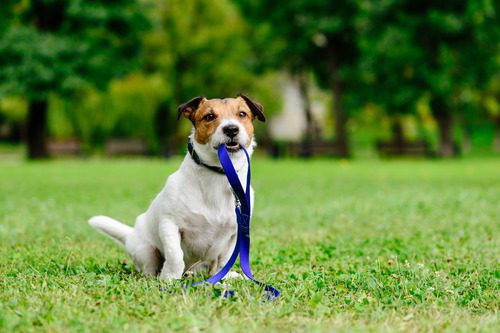Can Dogs Get Dementia?
As dogs age, you may notice changes in their behavior, mood, and cognitive abilities that make you wonder, can dogs get dementia? The answer is yes, dogs can experience a condition similar to dementia in humans, known as Canine Cognitive Dysfunction Syndrome (CCDS). This progressive condition affects a dog’s memory, learning, and awareness, often causing confusion and changes in daily habits. We’ll review the symptoms, potential causes, and ways to help dogs affected by dementia. If you suspect your dog may be experiencing cognitive issues, contact Lane Veterinary in Hinsdale, IL, at (630) 320-6644 to schedule an evaluation.

What Is Canine Cognitive Dysfunction Syndrome?
Canine Cognitive Dysfunction Syndrome, or CCDS, is a neurological condition that impacts older dogs, often resembling Alzheimer’s disease in humans. It is caused by changes in the brain associated with aging, including the accumulation of proteins and reduced blood flow. These changes can lead to impaired memory, confusion, and disorientation.
What Are Warning Signs of CCDS?
CCDS can present with a variety of symptoms that may seem subtle at first but often become more pronounced over time. Here are some signs to watch for in your senior dog:
- Your dog may get lost in familiar places, such as your home or yard.
- Dogs with CCDS often sleep more during the day and less at night.
- They may appear less interested in socializing with family or other pets.
- Dogs may forget their house-training and have accidents indoors.
- Increased irritability or anxiety is common.
- Pacing, circling, or other repetitive movements can indicate cognitive decline.
If your dog exhibits any of these symptoms, consult with your veterinarian for an accurate diagnosis.
What Causes Dementia in Dogs?
The exact cause of CCDS is not entirely understood, but it is closely linked to the natural aging process. As dogs grow older, their brains undergo physical and chemical changes that can lead to cognitive decline. Some contributing factors include:
- Oxidative Stress: Damage caused by free radicals can impair brain cells.
- Protein Buildup: Similar to plaques in human Alzheimer’s disease, protein deposits can disrupt normal brain function.
- Reduced Blood Flow: Age-related changes in circulation can deprive the brain of essential oxygen and nutrients.
- Genetic Predisposition: Certain breeds may be more prone to developing CCDS.
Diagnosing Canine Cognitive Dysfunction Syndrome
Diagnosing CCDS involves a thorough evaluation by your veterinarian. Since many of the symptoms overlap with other health conditions, such as arthritis or vision loss, it’s necessary to rule out alternative explanations.
What to Expect During a Veterinary Visit
During your appointment, your veterinarian will:
- Ask questions about your dog’s behavior, habits, and any noticeable changes.
- Perform a physical examination to help identify any underlying health issues that could mimic CCDS symptoms.
- Conduct diagnostic tests such as bloodwork, imaging, or neurological exams to rule out other conditions.
How to Support a Dog With Dementia
While there is no cure for CCDS, there are several ways to help manage symptoms and improve your dog’s quality of life. A combination of environmental adjustments, mental stimulation, and veterinary interventions can make a significant difference.
Environmental Modifications
Making small changes in your home can help reduce confusion and anxiety for your dog. Establishing a regular schedule for feeding, walks, and bedtime can provide a sense of stability.
Keep their environment calm and predictable, avoiding unnecessary changes to furniture or daily activities. Ensure your dog can easily access their bed, food, and water. Using nightlights can help dogs who struggle to see in the dark.
Diet and Supplements
Nutrition plays a vital role in brain health. Some diets are specifically formulated for senior dogs and include ingredients that support cognitive function, such as antioxidants, omega-3 fatty acids, and medium-chain triglycerides (MCTs). Talk to your veterinarian about whether a special diet or supplements might benefit your pet.
Veterinary Treatments
In some cases, your veterinarian may recommend medications to help manage CCDS symptoms. These could include drugs that enhance blood flow to the brain, reduce anxiety, or improve sleep patterns. It’s important to discuss all available options with your veterinarian to determine the best course of action for your dog.
The Importance of Mental and Physical Stimulation
Keeping your dog mentally and physically active can help slow the progression of dementia. Activities that engage their brain and body can improve their overall well-being such as:
- Interactive Toys: Puzzle feeders and treat-dispensing toys can provide mental stimulation during mealtime.
- Positive Reinforcement Training Sessions: Reinforcing basic cues can help maintain cognitive function.
- Short Walks: Regular exercise promotes physical and mental health. Tailor the duration and intensity to your dog’s capabilities.
How to Recognize When It’s Time for Help
Caring for a dog with dementia can be challenging, especially as symptoms progress. It’s essential to monitor your dog’s quality of life and recognize when additional support may be needed. Signs that it may be time to seek veterinary guidance include:
- Increased confusion or disorientation.
- Significant changes in appetite or weight.
- Persistent anxiety or restlessness.
- Inability to interact with family or participate in favorite activities.
If you’re unsure about your dog’s condition, call Lane Veterinary at (630) 320-6644 for personalized advice and care.
Helping Your Dog Thrive in Their Senior Years
Cognitive changes in dogs can be difficult to witness, but with the right support, your senior dog can continue to enjoy a happy and fulfilling life. Regular veterinary care, combined with lifestyle adjustments, can make a profound difference. By staying attentive to your dog’s needs and seeking guidance when necessary, you can provide the care they deserve in their golden years. For more information or to schedule an evaluation for your aging dog, contact Lane Veterinary in Hinsdale, IL, at (630) 320-6644. Our team is here to help your pet navigate this stage of life with compassion and expertise.
Recent Posts
About Us
Choosing a vet means entrusting your pet’s care and well-being to capable hands. Lane Veterinary strives to be a lifetime vet for you and your family, being the people you can always lean on for support and guidance. As a privately owned practice, we stand to give people and their pets the one-on-one care and attention they deserve in a calm and comfortable setting.
